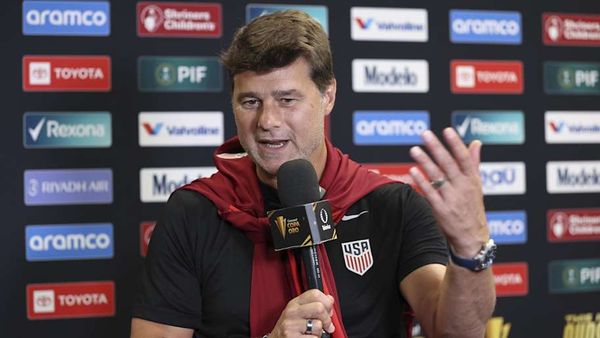CHICAGO — After digging into the Billy Goat Tavern’s new bun and realizing that the storied bar changed a lot more often than I thought, I wondered what else was buried in the Tribune archives.
In two words: a lot.
It shouldn’t be too surprising that a bar commonly known for being the official hangout of journalists would be mentioned frequently. But it’s also clear that even if the bar were located 5 miles from downtown, it still would have shown up in the paper. That’s primarily thanks to the original owner, William Sianis.
The first mention came June 19, 1938, four years after Sianis purchased the Lincoln Tavern at 1855 W. Madison St., across from the old Chicago Stadium (which was replaced in 1995 by the United Center). As the article explains, within the first year of opening, Sianis renamed the bar the Billy Goat Tavern after a goat fell off a truck and wandered into the bar: “Billy — that’s the goat — brought good luck to Mr. Sianis because business improved at his restaurant when the goat was put on the floor show. Mr. Sianis grew a set of whiskers just like Billy’s so Billy would feel at home.”
The article also mentions that Sianis’ new facial hair caused him some trouble with the government when he needed a copy of his citizenship papers: “The government people didn’t think it was Bill Sianis because the picture of him on file had no whiskers at all. Bill could solve it right away with a shave but he just can’t bring himself to do it, not with Billy’s fifth birthday party coming on Wednesday.”
Whether or not William Sianis really thought the goat was lucky, he sure loved taking it around the city. On Jan. 28, 1942, he brought the goat to the Tribune public service office to purchase a $1,000 defense bond: “With him was his pet goat, Billy, who is doing his part in the defense bond campaign by carrying the placard, ‘Buy Defense Bonds.’ Sianis, a naturalized citizen, said he only wished he could buy more defense bonds.”
Of course, not every establishment enjoyed having a live goat parading about, which leads us to one of the most infamous events in Chicago sports history. On Oct. 7, 1945, the Tribune briefly reported that at Game 4 of the World Series between the Chicago Cubs and Detroit Tigers, “Billy Sianis, owner of a tavern near Chicago Stadium … insisted on bringing a goat into the box seat section.” The goat was turned away, even though it had a sign on it that read, “We Got Detroit’s Goat.” Though the Cubs lost the game, you’ll notice that nothing about a curse or a hex was mentioned.
But that didn’t stop Sianis from continuing to travel to public events with a goat. On Aug. 17, 1947, the goat showed up at a charity baseball game featuring “Chicago radio stars” where it “slowed down play in the second inning” by chewing “up third base.”
By the 1950s, Tribune reporters started going out of their way to find an excuse to quote William Sianis. After a Tribune investigation into “B girls,” an old-fashioned term to describe women who lured male customers into bars, Sianis apparently “insisted the street has been closed down for ‘B’ girls for a considerable period.” Yet, the reporter then found the need to add that Sianis’ “neat imperial cut whiskers are of the type made famous by the late King Edward VII of England.”
Sianis’ beard shows up again July 20, 1958, in an article by Eleanor Page called “Does a beard add to manly charm?” Strangely, even though the article claims Sianis started growing his beard in 1934, exactly as mentioned before, it differs in its claim that he has “worn this beard for 24 years in memory of the pet goat which saved him from death as a child.”
On June 26, 1960, the Tribune wrote a shockingly detailed story about how after Billy the goat broke his leg, he was headed for a farm in Michigan that offered a “therapy program in which animals are used to help ex-convicts adjust to society.” This is even though a “veterinarian advised Sianis to ‘do away’ with the animal.” This didn’t stop Sianis from getting more goats as the years went on.
Some of the best quotes about the Billy Goat happen in passing, like on Feb. 11, 1961, when a reporter, with as much irony as possible, wrote that “Billy Goat Sianis, who operates a mineral spring across from Chicago Stadium, says he has it on the highest authority that the scalpers do not have all the tickets for tonight’s pro tennis matches.”
Or on May 29, 1962, when Sianis complained to writer David Condon that the boxing match between Sonny Liston and Floyd Patterson wasn’t taking place across the street at the Chicago Stadium: “How’m I gonna make any money — how’m I gonna feed my goat? One thing about the boxing people, they spend money. … Hockey people, too. Even the fans at the ice show spend. You know who don’t spend? Sportswriters and Republicans.”
Then we get this remarkable quote: “I’ve never been able to trick the sportswriters, but the Republicans, yes. (In 1944,) they had the national convention in the Stadium and I put on 25 people as extra help. The first day we took in $20. So I put up a big sign, ‘No Republicans Allowed,’ and the next day they all came in and spent $2,600. I raised the prices.”
The goats didn’t always cooperate with Sianis. On July 15, 1963, one escaped from the tavern and rammed a police car, “leaving two horn marks on the side.” Fortunately, the police officers were able to wrangle it back inside. (For whatever it’s worth, an escaped llama also caused mayhem that day.)
You may have noticed a remarkable lack of cheeseburgers in the history so far. That’s because while located at 1855 W. Madison St., the Billy Goat Tavern didn’t have a grill. It was only after moving to 430 N. Michigan Ave. that it started serving food. Tragically, Sianis had to make the move without his goat because someone lodged a complaint, as detailed on March 12, 1964: “For the first time since 1934, bearded William (Billy Goat) Sianis crouches disconsolately in his oasis completely unguarded by a goat of any kind. … ‘There are no signs anywhere on Michigan Avenue that say, ‘Goats not allowed,’ said Mr. Sianis, ‘and until there are, you may rest assured the goat will be here.’”
While mostly sportscasters frequented the original Billy Goat location on the West Side, once it moved to Michigan Avenue, it became the de facto hangout for Tribune and Sun-Times reporters, leading to even more Billy Goat press. By March 23, 1967, Herb Lyon made it official: “Surely this town’s most colorful joint is the Billy Goat Tavern, run by even more colorful Billy Sianis, 72 — the newspaper guys’ second ‘office.’”
My favorite mention of the Billy Goat Tavern might be from Nov. 4, 1969, in Robert Nolte’s article called, “Pet goat says nay and leads merry chase.” It details how one of Sianis’ goats “disappeared into the city’s storm sewerage system yesterday after a chase by police, firemen, animal wardens, and construction workers.”
The entire account is a great read: “They chased Billy in Randolph street, Wacker Drive, along Canal and Lake streets, and finally cornered him along the banks of the Chicago River. The goat dived into the river and swam to the other side. A fire department boat putted after him and firemen from another boat raced to the other side to head Billy off.” That’s when the goat apparently ran into the sewer, though Dr. Robert Brewer of the Anti-Cruelty Society didn’t think he’d stay there long. “I think he’ll find his way out,” Brewer said. “Goats are smart animals, and I don’t think he’ll find it too pleasant in there.”
William Sianis died in 1970. On Oct. 26, 1970, reporter Nolte wrote that the funeral was “the happiest wake” in Chicago: “Billy Goat had friends from every walk of life … judges, police officers, plumbers, politicians, reporters, editors, photographers, truck drivers and printers.”
While the Billy Goat lost its original owner, his nephew, Sam Sianis, quickly took over and proved just as quotable. On Aug. 11, 1973, Will Leonard wrote that Sam Sianis had even continued the Cubs curse: “Armed with two tickets, he and another goat tried to get into Wrigley Field and were turned away. ‘That does it,’ quoth Sam. ‘The jinx is still on.’”
Oddly, nothing was written immediately about the 1978 “Saturday Night Live” skit that would popularize the tavern’s “cheezborger, cheezborger, cheezborger” line. To be fair, the skit never mentioned the Billy Goat, instead referring to the establishment as the Olympia Restaurant. But it was written by Don Novello, who frequented the Billy Goat before moving to New York to write for the show.
But there’s no doubt the skit brought the Billy Goat a huge amount of attention. On Aug. 3, 1980, Sam Sianis even joked that he could raise enough money to buy the Chicago White Sox by collecting all the unpaid tabs left by newspapermen: “I raise that quicker than you say cheeseburgah, cheeseburgah.” (At first, writers used a number of different spellings to properly convey cheeseburger in a Greek accent, though most eventually settled on cheezborger.)
The Billy Goat’s fame continued to grow, and when Julia Child visited Chicago in 1981, she even made a visit: “Julia told WLS’ Pat Collins … that Billy Goat’s served one of the best burgers she’s ever had in all her French chef’s life, the roll is ‘awfully good’ not to mention those crisp pickles, and, mon Dieu, ‘I think I could live on this forever.’”
By the 1980s, the Cubs wanted to do something about the supposed curse. In an article published April 12, 1982, Sam Sianis talked about being invited to Wrigley Field, where he brought a goat to try and end the curse: “The goat, he love it, and make himself right at home,” Sianis said.
One of the first in-depth articles about the Billy Goat Tavern was published March 9, 1984, by my current colleague and Tribune sports columnist Paul Sullivan: “Chicago has older bars, classier bars, cheaper bars and trendier bars. It does not have, however, a more unusual bar.”
That same year, the Billy Goat opened a second location at 309 W. Washington St. Numerous articles were written about the opening, but my favorite was by Maria Donato, thanks to this gem: “Everyone there agreed on one thing. The place was too clean.”
The poet laureate of the Billy Goat was undoubtedly Mike Royko, who first wrote for the Chicago Daily News and the Chicago Sun-Times, before finally moving to the Tribune in 1984. Royko was so synonymous with the Billy Goat Tavern that when the first President George Bush visited Chicago, he went to the bar and asked to see the columnist. Royko famously declined. But it wasn’t a total wash for the president, according to an article from Dec. 11, 1991: “Bush and his aides, though, were pleased with the trip, especially the stop at the Billy Goat, which he still was talking about later, praising the somewhat greasy Formica-table hangout as that ‘marvelous burger place.’”
Over the next two decades, the Billy Goat continued to open new locations and host celebrities and politicians. Hillary Clinton visited in 1996. Al Gore in 1999.
But only one politician has his own menu item. During the 2008 presidential election, staffers for the future President Barack Obama often stopped by the Billy Goat for a late-night snack. One of their favorite orders was a double cheeseburger with bacon, egg and grilled onions, which became known to insiders as the Obama burger. Ten years later, on March 19, 2018, Tribune reporter (and future fellow food critic) Louisa Chu blew the lid on the secret item.
In 2016, the Chicago Cubs finally looked like they were going to go all the way. This meant, of course, numerous articles on the curse, though the most complete was published Sept. 29, 2016, by Rick Kogan. After the Cubs won, officially ending the curse, the team gave a small nod to the Billy Goat. On April 15, 2017, Sullivan wrote that the World Series rings had a goat on them.







